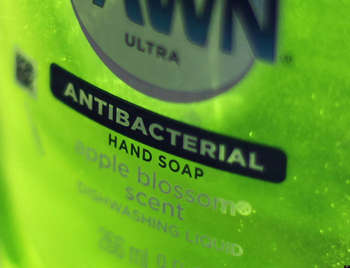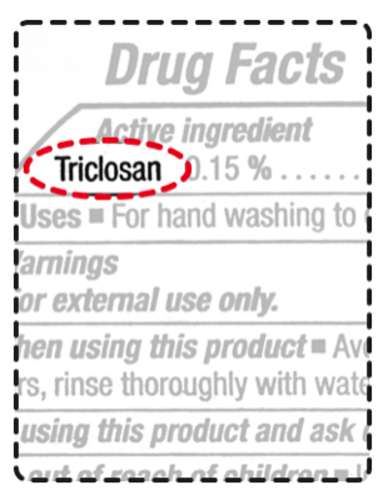The FDA rules on triclosan

Photo: Huffingtonpost.com
After decades of concern over triclosan use in hand soaps, the Food and Drug Administration (FDA) announced last month that it would closely scrutinize antibacterial soaps in response to fears about their effectiveness and impacts on human and environmental health.
Antibacterial Soap & Triclosan
So-called antibacterial soaps contain additional chemicals not found in traditional soap. Chief among these chemicals: triclosan.
Research indicates that triclosan in soaps and body washes provides no health benefits to consumers. Thats why the Minnesota Department of Health has long advocated for consumers to wash hands with soap and warm water, rather than triclosan-based soaps. Unfortunately, triclosan is still used in a variety of soaps and personal care products.
Concerns about triclosan go beyond its lack of effectiveness. Triclosan can harm aquatic life, and has led to a sudden buildup of dioxins in surface waters (including the metro Mississippi River). Research also indicates that triclosan may alter the way hormones work in the body, and may contribute to the emergence of resistant strains of bacteria. Human exposure is very common; the Centers for Disease Control and Prevention found the chemicals in the urine of three-quarters of Americans tested as part of the 2003-2004 National Health and Nutrition Examination Survey, while additional research found triclosan in the blood, urine, and breast milk of people worldwide.
FDA inaction
The FDA admits that it does not have evidence that triclosan in antibacterial soaps and body washes provides any benefit over washing with regular soap and water. Despite this alarming lack of evidence and numerous concerns about triclosans human and environmental impacts, the FDA has never finalized rules for triclosan in hand soaps.
This inaction led to a 2010 lawsuit filed by the Natural Resources Defense Council, which aimed to force the agency to issue a final rule. Under a settlement signed with the FDA in November, the agency committed to developing final rules by 2016. This ruling has been hailed by a variety of environment and public health organizations, and lauded in a recent Star Tribune editorial.

Photo: U.S. Food & Drug Administration
What the FDA ruling means
The FDAs decision does not immediately remove triclosan from store shelves; rather, it requires that manufacturers prove that triclosan soaps provide a clinical benefit over washing with traditional soap. If, as expected, the FDA finds that triclosan in hand soaps is no more effective than soap and water, the agency may take action to require labeling changes or even remove triclosan from some products altogether. The FDA is hosting a 180-day comment period, followed by a 60-day rebuttal period, before making a decision on triclosan.
This ruling follows recent announcements by Johnson & Johnson, Proctor & Gamble, and GlaxoSmithKline that they will phase out the use of triclosan in their products. In addition, Governor Mark Dayton signed an executive order in 2013 barring state agencies from purchasing triclosan products.
Consumer choices
So how should we wash our hands? Minnesotans should follow the recommendations of the Minnesota Department of Health and wash hands with warm water and plain soap. Additional information on hand washing is available through the Centers for Disease Control and Prevention.
It is important to note that the FDA ruling only addresses so-called antibacterial soaps, and does not address triclosan in any other personal care products such as toothpaste or deoderant. Given triclosans potential risks to human and environmental health, we recommend avoiding the use of all personal care products that contain triclosan. How do you tell if a product has triclosan in it? Most antibacterial products have the word "antibacterial" on the label so thats a good place to start. Check the Drug Facts label on soap or body wash to make sure it is triclosan-free. Some products, like deodorant or cosmetics, are not required to carry a Drug Facts box but do list triclosan in the ingredients.
For a comprehensive summary of products that contain triclosan, we recommend the Environmental Working Groups skin deep website.
For form information on triclosan and its impacts on the Mississippi River, visit the State of the River Report website or contact FMRs Water Program Director Trevor Russell.